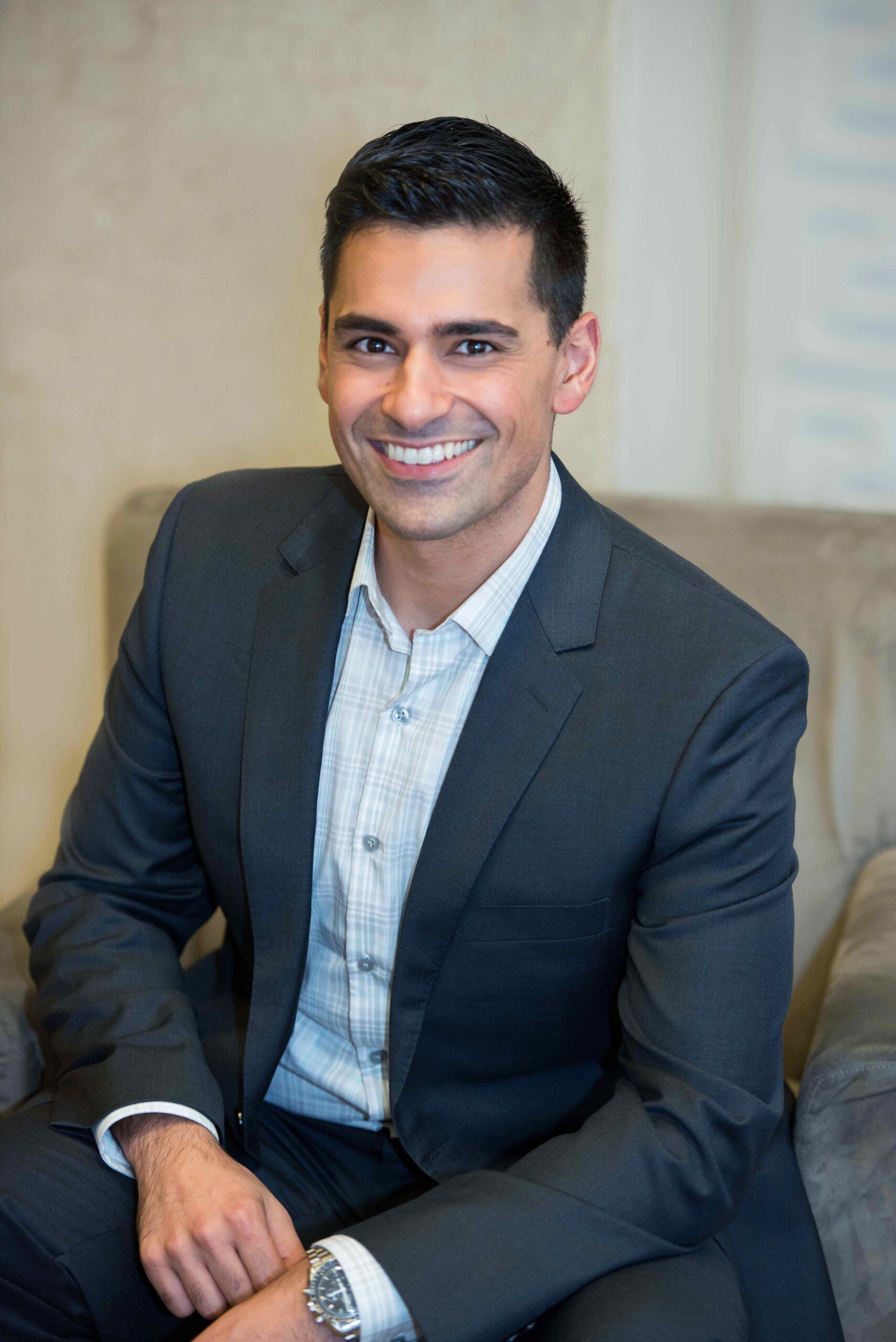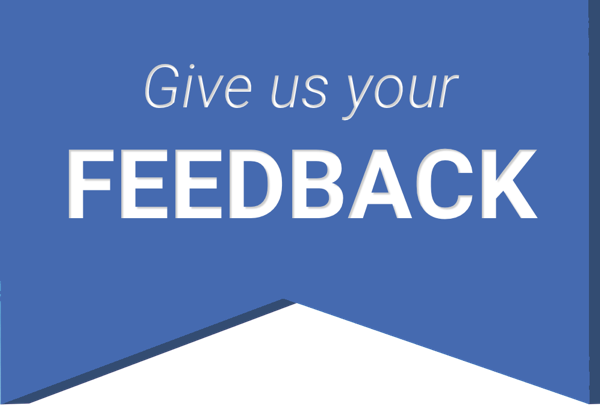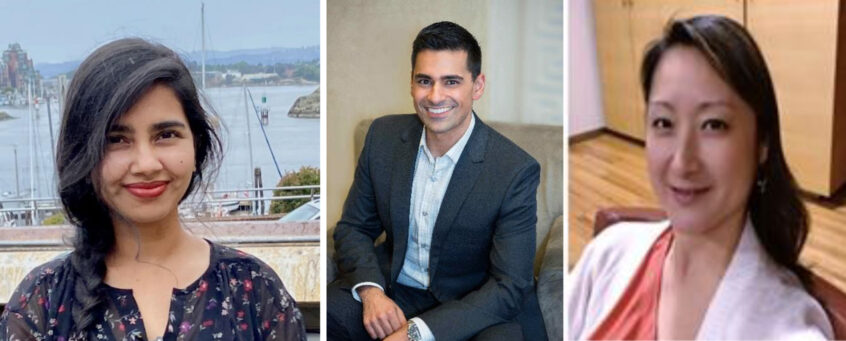Diversity at leadership levels makes for stronger organizations. To ensure our health-care system is better able to address the challenges it is facing, we need voices with different ideas and approaches. Seven VPSA members participated in the third annual VCH EDI Physician Leadership Mentorship Program, an initiative of the VCH EDI Medical Staff Committee, as both mentors and mentees. Their experiences show that our health authority supports new and emerging physician leaders from equity-deserving groups.
 Dr. Esaba Kashem is a palliative medicine physician working at VGH. She was partnered with mentor Dr. Eliza Chan, an emergency physician at Richmond Hospital who is very active in EDI initiatives. Dr. Kashem views the program as a formal way of meeting likeminded physicians who have decades more training than herself. She found it helpful to speak with Dr. Chan about experiences she had earlier in her career.
Dr. Esaba Kashem is a palliative medicine physician working at VGH. She was partnered with mentor Dr. Eliza Chan, an emergency physician at Richmond Hospital who is very active in EDI initiatives. Dr. Kashem views the program as a formal way of meeting likeminded physicians who have decades more training than herself. She found it helpful to speak with Dr. Chan about experiences she had earlier in her career.
“No matter where we are in our career, as we go through changes we can benefit from guidance, support and camaraderie,” said Dr. Kashem. “Eliza and I met many more times than was expected by the program and we’re still meeting. We’ve become great friends and colleagues. She was able to give me a lot of advice specific to medicine as well as how to manage being involved in other EDI committees and teaching and research. Sometimes it’s really difficult to strike that balance where you get to do everything you love but do justice to it. Eliza helped me get a sense of perspective and also be realistic. I feel a lot more at peace with my decisions and I still continue to ask her for advice.”
 Ophthalmologist Dr. Nawaaz Nathoo is about 10 years into his practice and is currently the program director for the UBC Ophthalmology residency program. During his partnership with mentor Dr. Chad Kim Sing, Dr. Nathoo was keen to learn more about VCH and health authority leadership.
Ophthalmologist Dr. Nawaaz Nathoo is about 10 years into his practice and is currently the program director for the UBC Ophthalmology residency program. During his partnership with mentor Dr. Chad Kim Sing, Dr. Nathoo was keen to learn more about VCH and health authority leadership.
“I really enjoyed the program; I learned a lot about different avenues for leadership within the hospital context that I wasn’t familiar with and a bit about how the hospital system works,” said Dr. Nathoo. “It was also applicable to the UBC leadership work I do in that the principles of leadership are the same no matter where you apply them: the struggles, the challenges. It was nice to have someone to bounce challenges off of, taking a step back to look at my situation and try to deconstruct a problem so we could think about how I could approach it.”
Dr. Nathoo sees physician leadership as a passion project in that it doesn’t pay as well as clinical work.
“It’s not what we’re trained for, and it can be outside our comfort zone. I’d like to see anyone who wants to be a leader have the opportunity to be formally mentored.”
Dr. Jennifer Yao is head of the UBC Division of Physical Medicine and Rehabilitation and was, until 2022, the medical site lead for GF Strong. This was her third year serving as a mentor for the  VCH Physician Leadership Mentorship Program. In 2024/2025, she was partnered with Dr. Brittany Rance, a palliative medicine physician at VGH.
VCH Physician Leadership Mentorship Program. In 2024/2025, she was partnered with Dr. Brittany Rance, a palliative medicine physician at VGH.
“When I was taking on some of these leadership roles before and during the pandemic, I found I had to seek out resources and answers on my own,” said Dr. Yao. “I had informal mentors, which was great, but there were definitely times where I felt like I just didn’t know what the best way was to move forward. Sometimes I had questions around how things work or would have liked to discuss strategies or decision making. I felt I would have been more effective if I had that sort of advice.”
She continued, “I enjoy meeting those who are taking on or thinking of taking on leadership positions. I think it’s really important that physicians do get involved. In particular I like to support women physicians to seek out these types of roles. I find it fulfilling to be able to meet them and share some of their experiences and hopefully be able to provide some guidance or input to help them navigate the system.”
Program evaluation
Both the mentors and the mentees had the opportunity to complete a survey regarding the program. Respondents overwhelmingly agreed and strongly agreed that:
- They were satisfied with the VCH Physician EDI Leadership Mentoring Program.
- The program was a good use of their time.
- The program allowed them to form a meaningful relationship with their mentor/mentee.
- The program was valuable to their leadership journey.
- The program met its overall objective to support aspiring and new/emerging leaders.
- They were satisfied with the overall organization of the program.
Comments included:
- Developing a strategic plan for the program, having performance conversations, being the successful applicant for the leadership role I held (but as interim at the beginning of the program), building skills and confidence around boundary setting.
- Mentoring an emerging leader inspires me to become a better leader.
- We were able to discuss lived experience on ensuring the voice of gender based and ethnically diverse groups add to voice of leadership.
- This needs to continue.
Areas for improvement were identified:
- More structured guidance and resources for mentors.
- A mix of in-person and online sessions.
- Desire for mentors to learn from each other, not just mentor/mentees.
- Enhance online session content and format.




